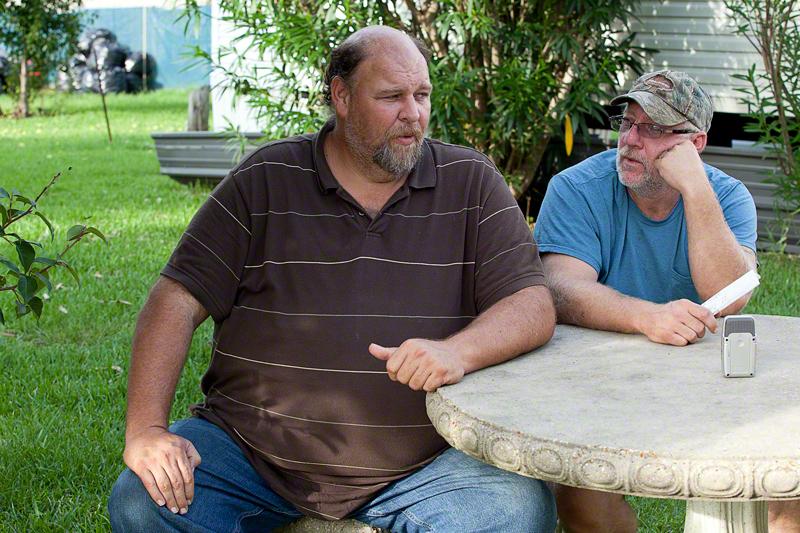Miller, who was in the VOO, is an eyewitness to
planes spraying dispersants, as well as the Carolina Skiff crews doing
the same.
"We'd roll up on a patch of oil mile wide by one mile long and they'd
hold us off from cleaning it up," Miller, speaking with Truthout at his
home in D'Iberville, Mississippi, said. "We'd leave and the Carolina
Skiffs would pull up and start spraying dispersants on the oil. The guys
doing the spraying would wear respirators and safety glasses. Their
boats have 375 gallon white drums full of the stuff and they could spray
it out 150 feet. The next day there'd be the white foam that's always
there after they hit the oil with dispersants."
Some nights VOO crews would sleep out near the work sites. "We'd sleep out there and some nights the planes would come in so close the noise would wake us from a dead sleep," Miller added. "Again, we'd call in the oiled areas during the day and at night the planes would come in and hit the hell out of it with dispersants. That was the drill. We'd spot it and report it. They'd call us off it and send guys out in the skiffs or planes to sink it."
Mark Stewart, from Ocean Springs, Mississippi, was in the VOO program for 70 days before being laid off on August 2. The last weeks has seen BP decreasing the number of response workers from around 45,000 down to around 30,000. The number is decreasing by the day.
Stewart, a third generation commercial fisherman, told Truthout he had regularly seen "purple looking jelly stuff, three feet thick, floating all over, as wide as a football field" and "tar balls as big as a car." He, like Miller, is an eyewitness to planes dispensing dispersant at night, as well as the Carolina Skiff crews spraying dispersant. "I worked out off the barrier islands of Mississippi," Stewart said. "They would relentlessly carpet bomb the oil we found with dispersants, day and night."
Stewart, echoing what VOO employees across the Gulf Coast are saying, told Truthout his crew would regularly find oil, report it, be sent away, then either watch as planes or Carolina Skiffs would arrive to apply dispersants, or come back the next day to find the white foamy emulsified oil remnant that is left on the surface after oil has been hit with dispersants.
Stewart added, "Whenever government people, state or federal, would be flying over us, we'd be instructed to put out all our boom and start skimming, acting like we were gathering oil, even when we weren't in the oil."
While acting as whistleblowers, Miller and Stewart have both been accused of being "troublemakers" and "liars" by persons in the Mississippi government and some of their local media, in spite of the fact that they are doing so from deep concern for their fellow fisherman and the environment.
Meanwhile, both men told Truthout they live with chronic headaches and other symptoms they've been experiencing since they were exposed to toxic dispersants while in the VOO program. Recent trips to investigate their waters for oil and dispersant have worsened their symptoms.
Mark Stewart with James Miller. (Photo: Erika Blumenfeld 2010)
"Why would we lie about oil and dispersant in our waters, when our livelihoods depend on our being able to fish here?" Miller asked. "I want this to be cleaned up so we can get back to how we used to live, but it doesn't make sense for us or anyone else to fish if our waters are toxified. I don't know why people are angry at us for speaking the truth. We're not the ones who put the oil in the water."
Miller is bleak about his assessment of the situation. He pointed out toward the coast and said, "Everything is dead out there. The plankton is dead. We pulled up loads of dead plankton on our trip on Wednesday. There are very few birds. We saw only a few when there are usually thousands. We only saw two porpoises when there are usually countless. We saw nothing but death."
Coast Guard Complicity
"Lockheed Martin aircraft, including C-130s and P-3s, have been deployed to the Gulf region by the Air Force, Coast Guard and other government customers to perform a variety of tasks, such as monitoring, mapping and dispersant spraying," states a newsletter published in July by Lockheed Martin.
An article by the 910th Airlift Wing Public Affairs Office, based in Youngstown, Ohio, states that C-130H Hercules aircraft started aerial spray operations Saturday, May 1, under the direction of the president of the United States and secretary of defense. "The objective of the aerial spray operation is to neutralize the oil spill with oil dispersing agents," it says.
Joseph Yerkes, along with other Florida commercial fishermen and Florida residents, have seen C-130s spraying dispersants on oil floating off the coast of Florida numerous times.
But the Coast Guard denies it.
(Note: You can view every article as one long page if you sign up as an Advocate Member, or higher).





